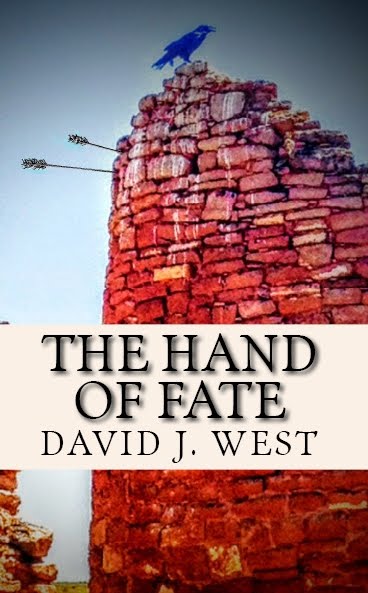This was one of the most fun writing and research books I've ever done. It was inspired by a real ghost town that was buried by Lake Mead. It was a fantastic backdrop for what I wanted to do which was essentially do for the American west what M.R.James did for the English countryside and ghosts.
It was also about the fastest I've ever written a book about a month. Granted it's short at just 53k but still an absolute labor of love.
If you haven't had a chance to check it out please do this weekend since it just a buck!
Just for a taster here is Keith West's review on Goodreads of Whispers- I was pretty pleased with this one and it's too bad that Amazon wouldn't let him post it because it thought we were related which we're not but such is life. So here it is:
Keith West (Lubbock, TX)’s review of Whispers Out Of The Dust: A Haunted Journey Through The Lost American West
Take the Mormon settlement of the West, mix in some M. R. James and H. Russell Wakefield, throw in a healthy serving of H. P. Lovecraft and a dash of Robert E. Howard, stir in Native American lore, bake in the desert heat and wash down with a lake formed by a damn, and what you’re likely to come up with something that resembles Whispers Out of the Dust.David J. West has begun to build a body of work in the sub-genre known as the weird western, and his most recent book is a solid addition to the field. It’s also one of his most ambitious projects to date. (And I absolutely love that cover.)
St. Thomas, Nevada was settled by Mormon pioneers, but the area had been home to the Anasazi and other tribes long before. The Mormons, many of them anyway, moved away when they discovered they were in Nevada rather than Utah and Nevada wanted to collect several years of back taxes. Still, the town survived until the Hoover Dam was built, and the waters of Lake Mead covered it up.
That much is historical fact. What David does is add a dose of fantasy which he blends so smoothly that you find yourself believing things you know can’t really be so. (At least you don’t think so.) The footnotes (end-notes, really) certainly add to the feeling of verisimilitude. David includes a number of photos he’s taken, which give you an idea of what the area looks like.
Whispers Out of the Dust traces the story of the area from the first Europeans to wander into the area until the waters cover the town. Along the way there are a number of ghosts, some cosmic horrors, and an appearance of West’s bounty hunter Porter Rockwell (“Right Hand Man”).
The voices and styles here are quite varied. Sometimes a single author collection gets pretty repetitive, and before you’re done all the stories read the same because the author only has one voice. That isn’t the case here.
You have tales told by educated men, by illiterates, by women, by cowboy poets, by Conquistadors. Some are short, and some are not so short, and “Right Hand Man” is downright long. Some ghosts are friendlier than others. Some aren’t friendly at all. There are characters who show up in more than one story, and we see them age and die.
What Whispers Out of the Dust is is supernatural slice of life in a forgotten corner of the United States. Small town and rural communities move at a pace all their own, and while that pace has increased in recent decades due to improved transportation and communication, that slow cadence that arises in an area where everyone knows everyone and people look out for their neighbors is still there. Whispers Out of the Dust catches that pace perfectly and adds a counter-tempo that can only come from a ghost or two hanging about. Or maybe it’s the drums in the hills…
If you like ghost stories, weird westerns, or both, you should definitely check out Whispers Out of the Dust. David J. West is a writer who is not afraid to stretch himself and grow and take literary risks. As I said earlier, this is one of the most ambitious projects by him that I’ve read. His risk-taking is our gain.





























No comments:
Post a Comment